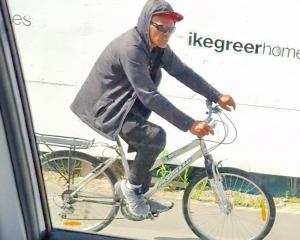
The Canterbury Rugby Football Union mobilised its 25,000-strong database this week to boost its campaign for Te Kaha Canterbury Multi-Use Arena to be built per its existing blueprint.
An email asked recipients to express support for a 30,000-seat covered stadium via a link to the city council’s website for submissions.
- Thousands have their say on future of stadium
- Stadium ball in residents’ court
- Only two options for stadium - Dalziel
- Historic NG building demolished
And yesterday, the pro-stadium movement gathered momentum when the Canterbury Employers’ Chamber of Commerce encouraged its 2700 members and the 75,000 employees it represents to call for the stadium to be built without delay.
The CRFU plea included the message: “Te Kaha will bring cultural and economic life back to the heart of our city and influence the Canterbury economy and the livelihood of our citizens for many decades to come.
“Whether it’s for sport, music or events we believe that as New Zealand’s second largest city, it must have the ability to share in the enjoyment of these types of events right here in Christchurch.
“The longer we wait, the more expensive this multi use arena will become. Please don’t let this opportunity slip away ...”

A $150 million budget blowout revealed on June 1 means the stadium earmarked for the CBD has a provisional price tag of $638 million, prompting the city council to undertake a review.
Downsizing capacity, mothballing the project or abandoning it are among options under consideration by the council while ratepayers fear they will be forced to cover the increase should the status quo remain.
However, CECC chief executive Leeann Watson questioned concerns over the implications for ratepayers.
“Christchurch City Council has published figures indicating rates will go up by a not insignificant amount. This is not factoring in alternative financing options nor the sale of Orangetheory (Stadium), and is scaremongering at best,” she said.

“If any of our elected representatives opt to pause or stop the construction altogether, it sends a very clear message that they have no ambition for the future of the city,” she said.
“The only option is to build it. Investing in the future of our city has never been more important.”
The CRFU confirmed last week it will not deviate from a long-held stance not to contribute financially because the new venue is a “community facility” and not exclusively for rugby. It already pays the city council a fee to stage matches at Orangetheory Stadium, as do the Crusaders.
Submissions for feedback on what the city council should do next regarding the stadium project opened last Friday and close on July 5.
By 2pm yesterday, there were 16,700 submissions, an increase of 5400 since Monday.
City council staff would not comment specifically on whether the CRFU and CECC strategy could influence the decision-making process while councillor Sara Templeton was not surprised at CRFU and CECC ploy.
“These groups are really passionate about the stadium, rallying round supporters is all part of the democratic process. I don’t have any problems with it,” she said.
Meanwhile, the council’s head of communications and engagement Katy McRae said steps have been taken to prevent respondents from manipulating the process by lodging multiple submissions.
“We are keeping a close eye on feedback and are address-checking as part of that process, using the data we hold on street addresses in Christchurch,” she said.
“We are also closely monitoring IP addresses so people can’t do multiple entries that claim to be from different street addresses, but are using the same IP address.”
Responses from outside Christchurch will also be split from opinions generated locally.
“We are expecting to get some feedback from around New Zealand and will be able to show that separately as part of the consultation analysis,” McRae said.
Templeton believed local submissions were more important.
“People who live here, who will end up paying for the stadium, their voices should carry more weight,” she said.












